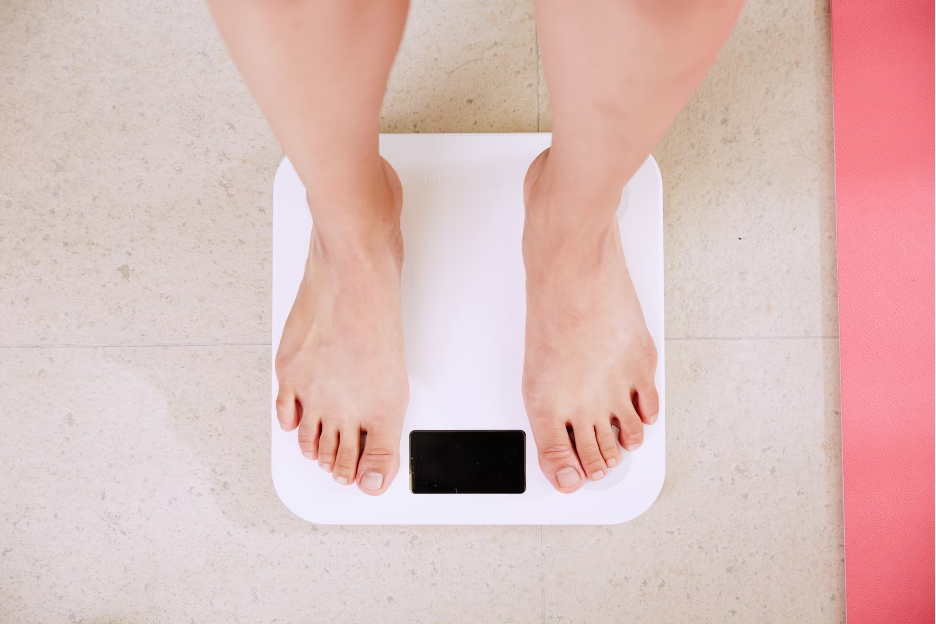Weight plays a significant role in the intricate relationship between body health and reproductive capabilities. As individuals and couples increasingly turn to technology like fertility trackers to enhance conception efforts, understanding the impact of diet and exercise on fertility becomes crucial. This article explores how body weight, influenced by diet and exercise, affects reproductive health and how fertility trackers can be used to monitor and optimise fertility.

Image Credit: Unsplash
The Link Between Body Weight and Fertility
The Impact of Being Overweight
Being overweight or obese can significantly impact fertility in both men and women. In women, excessive body fat can lead to hormonal imbalances that affect the menstrual cycle, potentially causing irregular periods or ovulation issues. These hormonal changes can decrease the chances of conceiving. Furthermore, obesity is associated with polycystic ovary syndrome (PCOS), a common endocrine disorder that can further complicate fertility.
For men, excess weight primarily affects sperm quality and quantity. Studies have shown that overweight men tend to have lower concentrations of sperm and more hormonal disruptions, which can reduce fertility.
The Risks of Being Underweight
Conversely, being underweight also poses risks to fertility. Women with too little body fat may experience amenorrhea (the absence of menstruation), which directly prevents conception. The body requires a certain level of fat to produce hormones like estrogen; low levels can disrupt the normal menstrual cycle and inhibit ovulation.
The Ideal Weight for Optimal Fertility
Maintaining a body mass index (BMI) within the "normal" range (18.5-24.9) is generally recommended for optimal fertility. However, it's essential to note that BMI is not a perfect measure, as it does not account for muscle mass and overall body composition.
How Diet Impacts Hormonal Balance
A balanced diet helps maintain stable hormone levels, which is essential for regular ovulation and sperm production. For example, diets high in refined sugars and low in fibre can lead to spikes in insulin and disrupt hormonal balance. This can affect ovulation and reduce the likelihood of conception.
Foods to Emphasise
A fertility-promoting diet should include:
- Whole grains like quinoa, oats, and brown rice provide sustained energy and help regulate blood sugar levels.
- Lean proteins from animal and plant sources, such as chicken, fish, beans, and lentils, are essential for hormone production.
- Healthy fats, such as those found in avocados, nuts, seeds, and olive oil, support hormonal functioning.
- Various fruits and vegetables supply necessary vitamins, minerals, and antioxidants that support detoxification and cellular health.
Foods to Limit
Conversely, some foods and substances can detract from fertility, such as:
- Trans fats and highly processed foods can increase inflammation and oxidative stress, potentially harming reproductive cells.
- Excessive caffeine and alcohol, in high amounts, may be linked to fertility issues such as reduced sperm count and ovulation problems.
How Exercise Influences Fertility
Regular exercise is beneficial for fertility, but the type and intensity matter. Moderate exercise can help maintain a healthy weight and reduce stress, but excessive high-intensity exercise can lead to hormonal imbalances that may negatively impact fertility.
Recommended Exercise for Fertility
Activities like walking, light jogging, swimming, and yoga are recommended for those trying to conceive. These exercises help maintain an optimal weight and reduce stress without overly taxing the body.
Utilising Fertility Trackers
A fertility tracker has become a valuable tool for couples trying to conceive. These devices can monitor various physiological parameters such as basal body temperature, menstrual cycle regularity, and even hormone levels to predict fertile windows accurately. By providing personalised data, fertility trackers help individuals make informed decisions about the best times to attempt conception.
The Benefit of Tracking
A fertility tracker can help couples understand the complex interplay between their lifestyle choices and reproductive health. It enables them to make timely and informed decisions, enhancing their chances of successful conception.
Conclusion
Weight management through a balanced diet and regular exercise plays a vital role in maintaining reproductive health. By understanding the impacts of body weight on fertility and utilising tools like fertility trackers, individuals and couples can significantly improve their chances of conception. Focusing on lifestyle adjustments that promote a healthy weight will not only enhance fertility but also contribute to overall well-being.
This article is part of the HealthManagement.org Point-of-View Programme.





